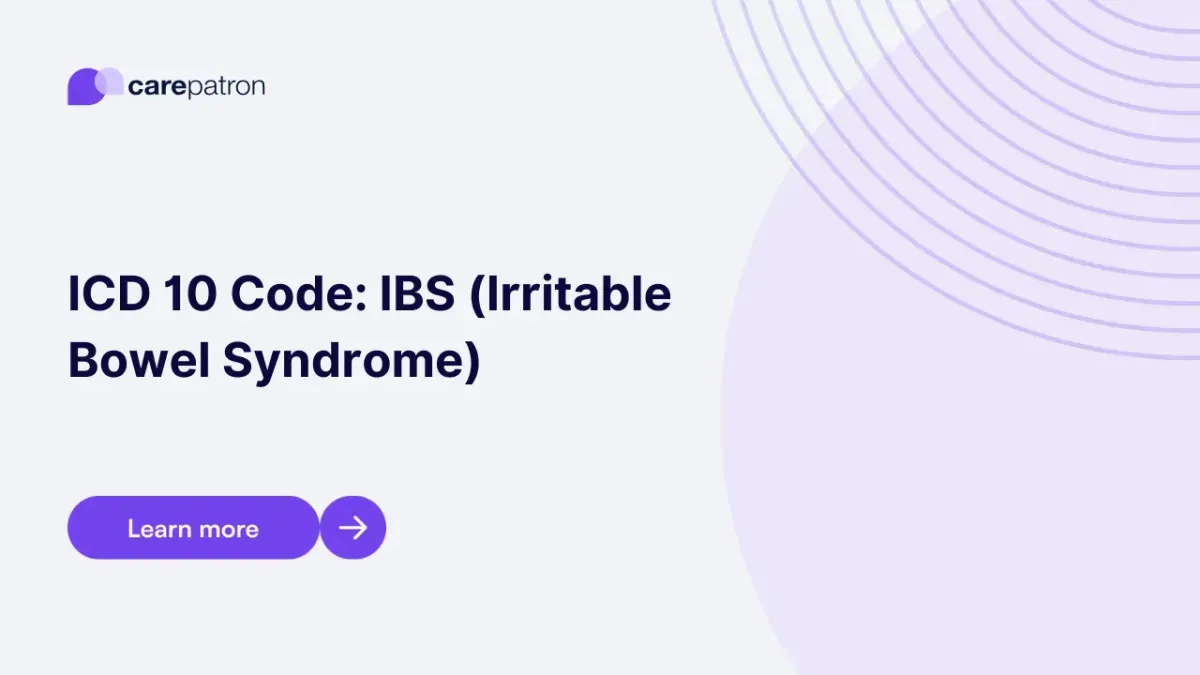
IBS (Irritable Bowel Syndrome) ICD-10-CM Codes
Learn about the different IBS ICD-10 codes you can use through this guide.
Use Code
Commonly asked questions
Foods, stress, hormonal changes, and certain medications can trigger IBS symptoms. Typical food triggers include dairy, carbonated drinks, and certain vegetables.
IBS is often diagnosed based on symptoms, but doctors may conduct tests to rule out other conditions. This can include blood tests, stool tests, and imaging tests.
While there's no cure for IBS, treatments can manage symptoms effectively. Dietary changes, medications, and other therapies can help improve the quality of life for individuals with IBS.
EHR and practice management software
Get started for free
*No credit card required
Free
$0/usd
Unlimited clients
Telehealth
1GB of storage
Client portal text
Automated billing and online payments
